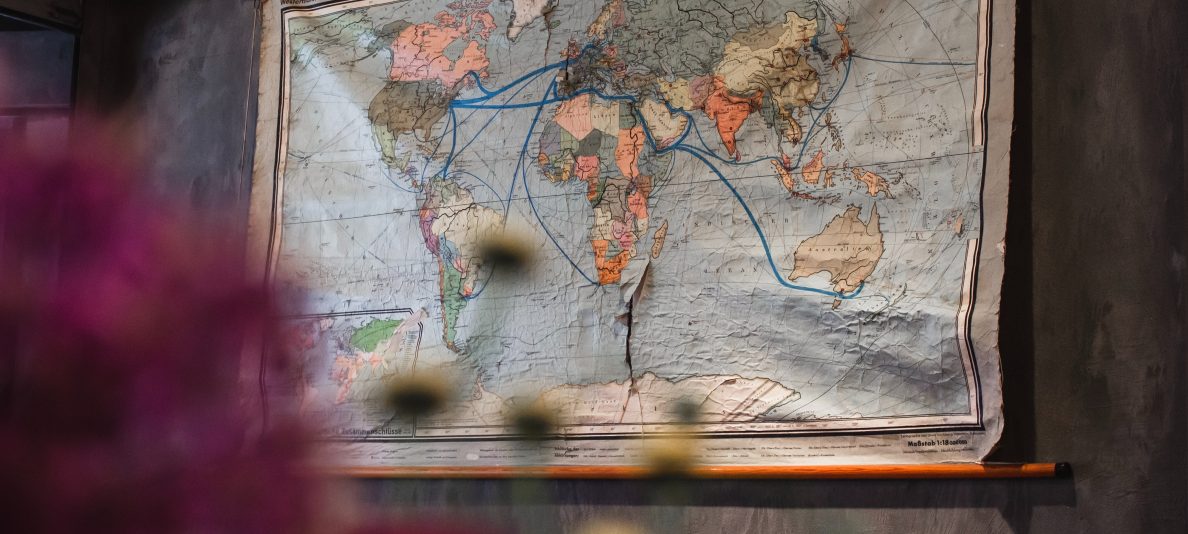
My wife and son and I are now taking tentative steps to return to in-person church after being away for most of the past year. Last week I attended an outdoor gathering and this past Sunday we all went to the worship service and a picnic after. It does feel good to be starting back again—but it also feels very odd and awkward and overwhelming. It’s not the first time we’ve felt that way, though. It’s strangely similar to what we experienced ten years ago, when we moved from living in the capital city of Taiwan back to southwest Missouri, when we found ourselves dealing with “reverse culture shock.”
If you’re not familiar with “culture shock,” let me explain. in 1951, as the concept was being applied to expats around the world, anthropologist Cora Du Bois defined it as a “malady” you face when you arrive in a new country, “precipitated by the anxiety that results from losing all your familiar cues.” She writes,
All of us depend for our peace of mind and our efficiency on hundreds of cues, most of which we do not even carry on a level of conscious awareness. . . . Now suddenly remove all, or most, of these cues—and you have a case of culture shock. No matter how tolerant or broad-minded or full of empathy you may be—a series of props have been knocked out from under you, and more or less acute frustrations are likely to result.
Given time, most of those anxieties subside (at least to an extent) and you become acclimated to your host country, your new home. But that means upon returning to your passport country, you find that you’ve changed—and your old home has probably changed, too, while you’ve been away. You’ve adopted a new set of “familiar cues,” cues that now clash with the people around you. Many find going through this “reverse culture shock” even more difficult than what they experienced relocating overseas. It’s more or less expected that the first trip would be disorienting, but coming “home”? That should be easy, right?
My family changed a lot of our behaviors while spending time as missionaries in Taiwan. We learned to take off our shoes and put on slippers when entering someone’s house. We learned that hugging as a greeting was usually too bold a display of public affection. We learned that we should wear a mask when we weren’t feeling well to keep others from getting sick. We learned that at McDonald’s leftover food needs to be separated from the rest of the trash. And we learned that traffic signals can sometimes be treated as interesting suggestions.
Then we came back, and we learned that those lessons needed to be re-navigated.
Other Americans who move to different countries bring back their own sets of practices and attitudes and face their own brand of reverse culture shock: They may have gotten used to less personal space and wonder why Americans seem so stand-offish. They may have covered their heads and dressed to follow local customs of modesty and upon returning are uncomfortable with the styles they see all around them. They may have walked every day among extreme poverty and find the wealth in the US difficult to come to terms with.
Do you see the similarities to the adjustment to post-COVID life? Just substitute home with normal in the above transitions, and you’ll see how reverse culture shock can describe the disorientation that many are experiencing. Should we wear masks or not? Should we sit close together in large groups? Do we hug, shake hands, bump fists, tap elbows, or just say Hi at a distance? Should we follow the advice of the CDC or social media?
Some of the adaptations we’ve made over the past year we’re eager to get rid of. But some have become habit, and some we might simply prefer. Will those who’ve switched to homeschooling make it a permanent change? Will we continue working from home? Absent our usual face-to-face interactions, have we found new groups we identify with? Will we keep on attending church online? Will our churches continue to offer virtual services? Have we become more comfortable worshiping in small groups? Will we continue to Zoom into meetings? How long will a bookmark for a COVID dashboard sit at the top of our Web browsers?
And what about our children? Families who move abroad raise “TCKs” (Third Culture Kids), children who are molded by living between the world their parents grew up in and the world they themselves have grown accustomed to. It can be hard for them to find a place where they fit in, especially when, as “hidden immigrants” in their passport countries, they look on the outside as if they belong, but inside, they feel out of place. Similarly, some are labeling the children who are growing up in the shadow of COVID, or who are born into a post-COVID world, as “Generation C.” How much of an effect will the pandemic and all the restrictions associated with it have on them?
There’s something else that missionaries and other cross-cultural workers know about cultural transitions, whether coming or going: they bring a fair amount of loss and grief. They also know that this grief can become “disenfranchised” when it stays hidden inside because it doesn’t fit what others (or ourselves) think we should be feeling. Many around us have lingering health issues from COVID. Many have lost loved ones under extremely difficult circumstances. Many couldn’t be with family members as they suffered. Many had to hold memorial services over the Internet. Many have worked countless hours on the front lines. Many have lost jobs or businesses. Many are struggling to get by.
And yet the return to normal tells us that we should move on. We should celebrate. We should go to all the weddings and birthday parties and graduations and vacation getaways that we’ve missed over the last year. It can be too much for some . . . though not for all.
Many have already returned to their old lives without missing much of a beat. (Some cross-cultural workers are able to do the same.) But for those who haven’t, for those who are slow to come back to in-person worship services or who sit on the back row when they do—arriving late and leaving early, feeling more like observers than participants—there’s a need for patience and grace. That patience and grace needs to be extended from those who are comfortable to those who are not, and those who are hesitant need to extend it to themselves, and others, as well.
Please understand that not all of us who are holding back, in whatever form, are living in fear. Not all of us are judging those who take a different approach. Not all of us are trying to make a statement. Not all of us are lacking in faith.
But even for those of us who are. . . .
Patience and grace.
And in the future, if you ever see a returned missionary family sitting quietly on the back row at church, even after they’ve been around for a few years, please remember where they’ve come from.
(Cora Du Bois, “Culture Shock,” To Strengthen World Freedom, Institute of International Education Special Publications Series, No. 1, New York, 1951, reprinted in Guidelines for Peace Corps Cross-Cultural Training, Part III, Supplementary Readings, Center for Research and Education, Peace Corps, Estes Park, March 1970)
[photo: “COVID-19 chronicles,” by Gilbert Mercier, used under a Creative Commons license]







